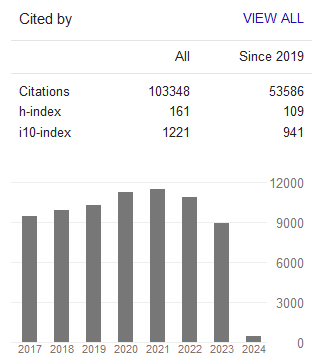Intercultural Adaptation Strategies to Culture Shock of International Students in China: A Case Study
- Md Shahidul Fakir
Abstract
The purpose of this study is to explore a case on culture shock and adaptation of an international student in China during the period from September 01, 2016 to May 01, 2017. This is the self-case study research which has been analyzed from multicultural context through a 50 sample research participants. A sample questionnaire survey on 32 international students from different developing countries and two Focus Group Discussions (FGD-1 and FGD-2) with 18 Bnagladeshi PhD and Master’s students in China have been conducted through online social media such as WeChat/Skype, Facebook, e-mail and/or personal contact in order to identify the forms of intercultural shock, and also to make a list of possible intercultural adaptation strategies to evaluate the best fit intercultural adaptation strategies. This study used judgmental convenience sampling technique. As psychological and social issues affect negatively the sojourner, the culture shock and adaptation curves show ups and downs trend as our heart does all the time and this is called heartbeat and again this would be sustainable. However, this proposed heartbeat model requires approval from scholars. This study identified the best fit intercultural adaptation strategies such as harmonious relationship, integration, assimilation, and separation. This study suffers from smaller sample size and shorter time period which could be covered in the future research. The findings and recommendations have positive implications to the international students those who are normally nervous and hesitated to enter into a new foreign culture to pursue higher studies for a long period of time.
- Full Text:
 PDF
PDF
- DOI:10.5539/ijbm.v13n2p231
Journal Metrics
Google-based Impact Factor (2023): 0.86
h-index(2023): 152
i10-index(2023): 1168

Index
- Academic Journals Database
- AIDEA list (Italian Academy of Business Administration)
- ANVUR (Italian National Agency for the Evaluation of Universities and Research Institutes)
- Berkeley Library
- CNKI Scholar
- COPAC
- EBSCOhost
- Electronic Journals Library
- Elektronische Zeitschriftenbibliothek (EZB)
- EuroPub Database
- Excellence in Research for Australia (ERA)
- Genamics JournalSeek
- GETIT@YALE (Yale University Library)
- IBZ Online
- JournalTOCs
- Library and Archives Canada
- LOCKSS
- MIAR
- National Library of Australia
- Norwegian Centre for Research Data (NSD)
- PKP Open Archives Harvester
- Publons
- Qualis/CAPES
- RePEc
- ROAD
- Scilit
- SHERPA/RoMEO
- Standard Periodical Directory
- Universe Digital Library
- UoS Library
- WorldCat
- ZBW-German National Library of Economics
Contact
- Stephen LeeEditorial Assistant
- ijbm@ccsenet.org
